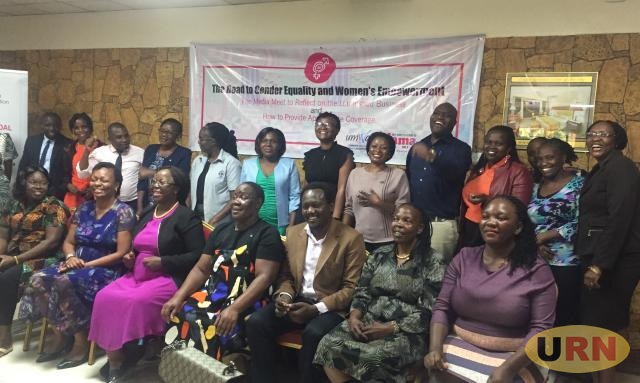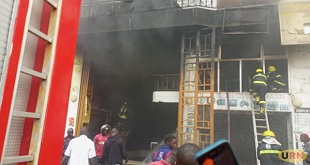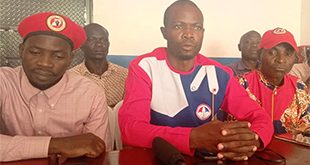
Kampala, Uganda | THE INDEPENDENT | Women activists have expressed deep concerns about the little coverage about gender sensitive issues and the women by the media in Uganda.
While unveiling the women’s month at Hotel Africana, the activists, led by Margret Sentamu the Executive Director Uganda Media Women’s Association-UMWA says that they want the media to advance gender equality and women’s empowerment as they report stories in the country.
She says: “The month of March is globally recognized as a women’s month, dedicated to highlighting the often overlooked needs and contributions of women while celebrating their social, economic, cultural and political achievements. It serves as a call to action for accelerating progress towards gender equality.”
Sentamu notes that there’s need for emphasis on the urgency of enhancing fair visibility of women in decision making process for social change, a crucial aspect in advancing gender equality which aligns with the global women’s day theme: “Invest in Women: Accelerate Progress.”
As Uganda prepares to celebrate the international women’s day celebrations, Ssentamu says that women’s day is beyond just recognizing prominent performing and vocal women but should be a day to reflect and find ways to address issues that affect women and how they can ensure more coverage for them.
Despite women constituting to 51% of Uganda’s population, women continue to be the most marginalized groups, facing challenges in productive work skilling, access to resources, ownership, and social economic safety. Sentamu notes that in a 2023 media monitoring report, it revealed alarming statistics, indicating that women are only represented as news sources and subjects at a mere 25%.
“In print, women were only 27% visible and 18% both in radio and television.” She says
Dick Nvule Nsubuga, an editor Radio Simba Fm who was one of the panelists argued that efforts to see that there more women in the news bulleting or talk shows have been in vain as they shun away.
“I do news on merit, I follow certain procedures, not because it’s women’s day. If you cannot make news then no, you will not appear in my bulleting,” he says Adding: “Yes the media portrays steotypes on women as they report but women have allowed that. If you don’t want to be protayed like that then be strategic,don’t provoke society to portrayed you as liabilities. Have something of importance to say because producers won’t call just anyone but they want someone who will add them value to the media house.”
Meanwhile Brenda Namata, Communications and Advocacy Officer, UMWA says that part of the gender gaps start with visibility. “Mainstream media is moving towards entertainment and edutainment because that’s where the money is and then this doing sexism. The stories are often times packaged in entertainment.”
“There’s a gap in understanding gender issues. It’s important that we prioritize media in. It’s important that we have specific media programs. If the media doesn’t have a proper understanding of gender issues, then they will be misrepresented or reported about.” She adds
Charity Ahimbisibwe, senior member UMWA and Executive Director, Uganda Electoral Laws Institute reveals that as one of the women who has been appearing in certain talk shows but stopped says that there are women who want to be in the media but their husbands refused them.
“Although some have stopped from appearing on air by their husbands, there are other women that they can use and are ready to fight for their spaces in the media.” She says
Sylvia Nankya the Chief Editor at Uganda Radio Network- URN acknowledges the claims against women appearing in the media, and the voices they use in stories.
“We are very deliberate about the voices that we bring in our newsroom. In situations where women turn down opportunities to appear on talk shows as a way of having inclusivity let the show producers make provisions like having pre recording shows so that women can still manage being with their families.” She says
Patricia Munabi, the Executive Director, Forum for Women in Democracy explains that gender equality is a human right all women want is to be recognize not to take men’s space while Equity is to have equal opportunity access.
She says that the Ministry of Gender, Labor and Child Development which handles most cases is not well funded.
“Although the numbers of women in leadership positions and influence have grown as a result of affirmative action, there is need for more to be done to address the imbalances.” She says
The Senior Program Advisor at Royal Danish Embassy Uganda, Fredrick Kawooya says that there is need for institutions of higher learning to incorporate gender based studies into the circulum to understand it so that they can be well reported about or handled.
*******
URN
 The Independent Uganda: You get the Truth we Pay the Price
The Independent Uganda: You get the Truth we Pay the Price


